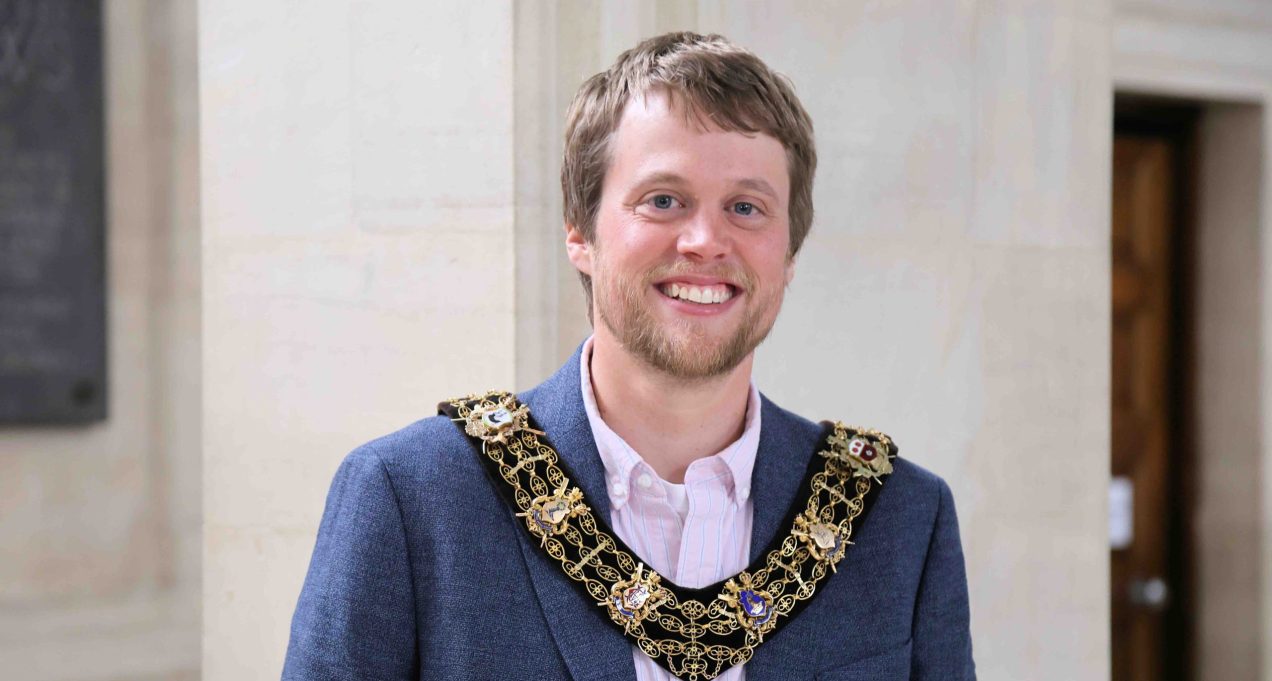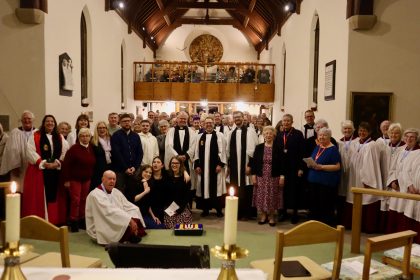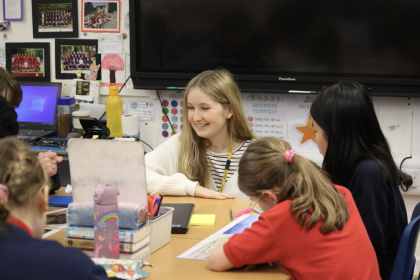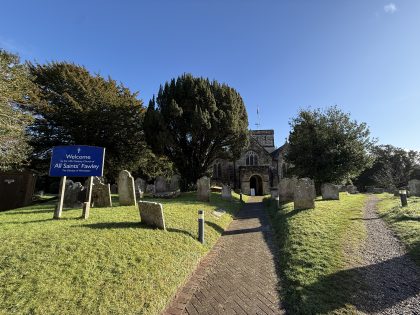Councillor James Baillie was born and brought up in Southampton. He has been a teacher for 12 years and is currently Head of Computing at a local secondary school. He became a councillor on Southampton City Council in 2016 and is now the youngest Lord Mayor in the city’s history. He attends Holy Saviour Church in Bitterne where he is worship leader.
Can you tell us about your faith journey?
I was brought up in a Christian family. My mum ran the Sunday school at church. We started at the Church of the Ascension in Bitterne Park and as a child, growing up in church with all the stories was wonderful. I had my first real encounter with God on our year six camp. That might sound an odd place to have that, but I was fortunate to go to a Christian primary school. We had some time of worship, and then there was a real encounter of the Holy Spirit, and that suddenly awoke the belief, and that relationship with God, properly within me.
That’s when I consider that my faith started properly, as a faith of my own rather than an inherited one. Then over my teenage years, our youth group at church was quite small, but we had a very committed youth worker. We’d meet several times a week to do Bible studies and pray, and that was key to my formation as a young person. It’s perhaps why one of the things that I’m quite passionate about is young people having those role models and people to guide them spiritually, because it made such a big difference to me in my life.
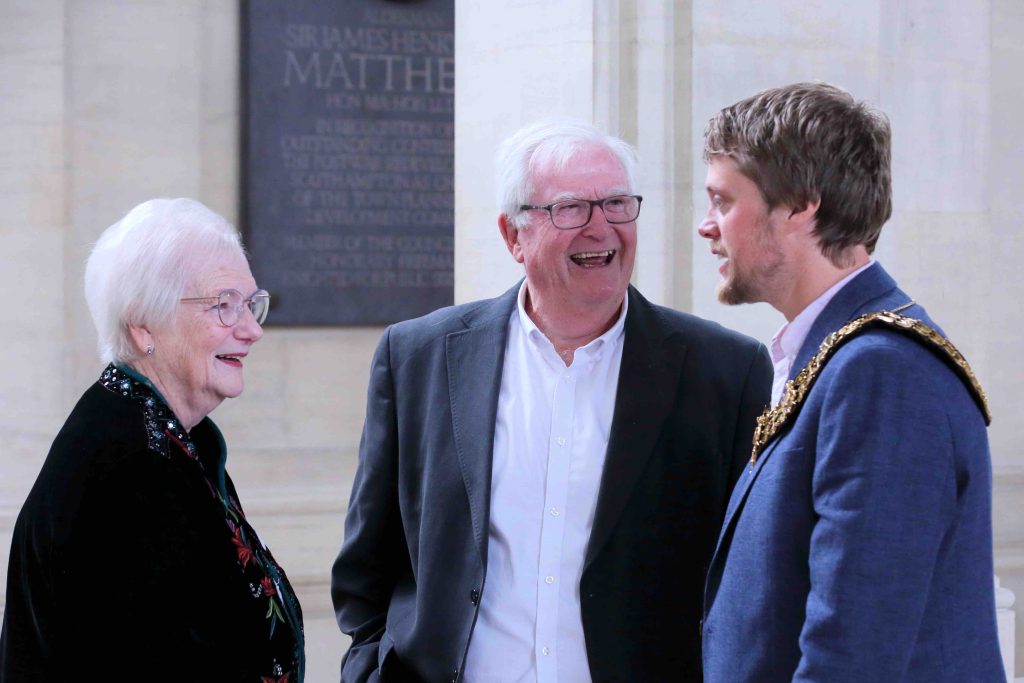
And how did your faith lead you into politics?
I think, in a lot of ways, Christians are naturally wanting to serve and give back and the civic side of life is another expression of that. It’s another way of serving the city that we live in. For me, it came about because there was something in my area that I wanted to improve, so I stood and was then elected about 10 years ago.
I think it’s just a different way of serving your community and there are so many people that I’ve met doing so many things that we don’t necessarily see, and I would never have known about if I hadn’t met them as mayor. You meet people making such a difference to the lives of others and that’s what I want to try and do.
What are the responsibilities of the Lord Mayor?
It is, these days, mostly a civic role. I suppose the main thing I do is promote Southampton. I hold a number of unusual historic titles such as Admiral of the Port or First Citizen, so my role is representing Southampton and being its biggest champion.
For me, it’s important to recognise the part that everyone plays in making Southampton what it is because, as I just mentioned, there are so many people who do such great work behind the scenes, so it’s nice to recognise them and make them feel valued and that’s what I try to do.
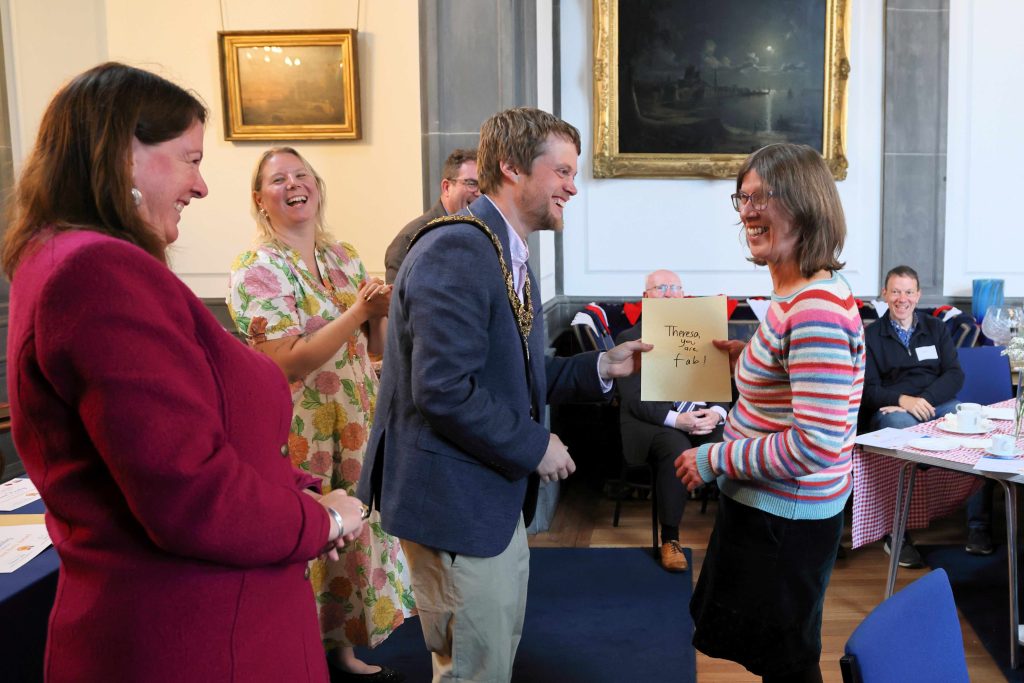
Are there challenges to being a Christian in politics?
Yes. I think it’s a difficult one, but we are quite fortunate because as well as myself, the leader of the council and the leader of the opposition are all Christians and they all go to our church.
But it is a challenge in some ways, because sometimes there are issues where you might feel the way that your party might be suggesting you vote, or the route your party takes, is not necessarily the way you think God would be wanting you to vote. That’s a difficult one to navigate. I think, also when people know you’re a Christian, they have an idea of what they expect you to be like, or how they expect you to act, so that can be a challenge as well. I think staying true to the God’s way of things, compared to the way of politics, can be quite tricky.
Are you able to use your role as Lord Mayor to spread faith in the city and spread God’s love in the city?
I don’t know if I’m supposed to or not, but I try my best. It’s an important part of my life. I was delighted to be able to bring back the Lord Mayor’s prayer breakfast after several years. That was a fantastic morning of prayer in the Lord Mayor’s parlour.
Also from my visits, I’ve been to around 140 events in the last four months, and the amount of community groups or charities doing great things that were started by churches is huge. So, the church has made a massive difference to Southampton and I think it’s only right to celebrate that.
And do you work with other faith leaders across the city?
Yes, absolutely. The Southampton Council of the Faiths did an excellent Peace Walk a couple of months ago that was really valuable. It went around all the different faith locations in the city centre, from synagogues, gurdwaras, mosques and churches. That’s really important to get an overview of the faiths of the city. The Council of Faiths do a good job to bring people together.
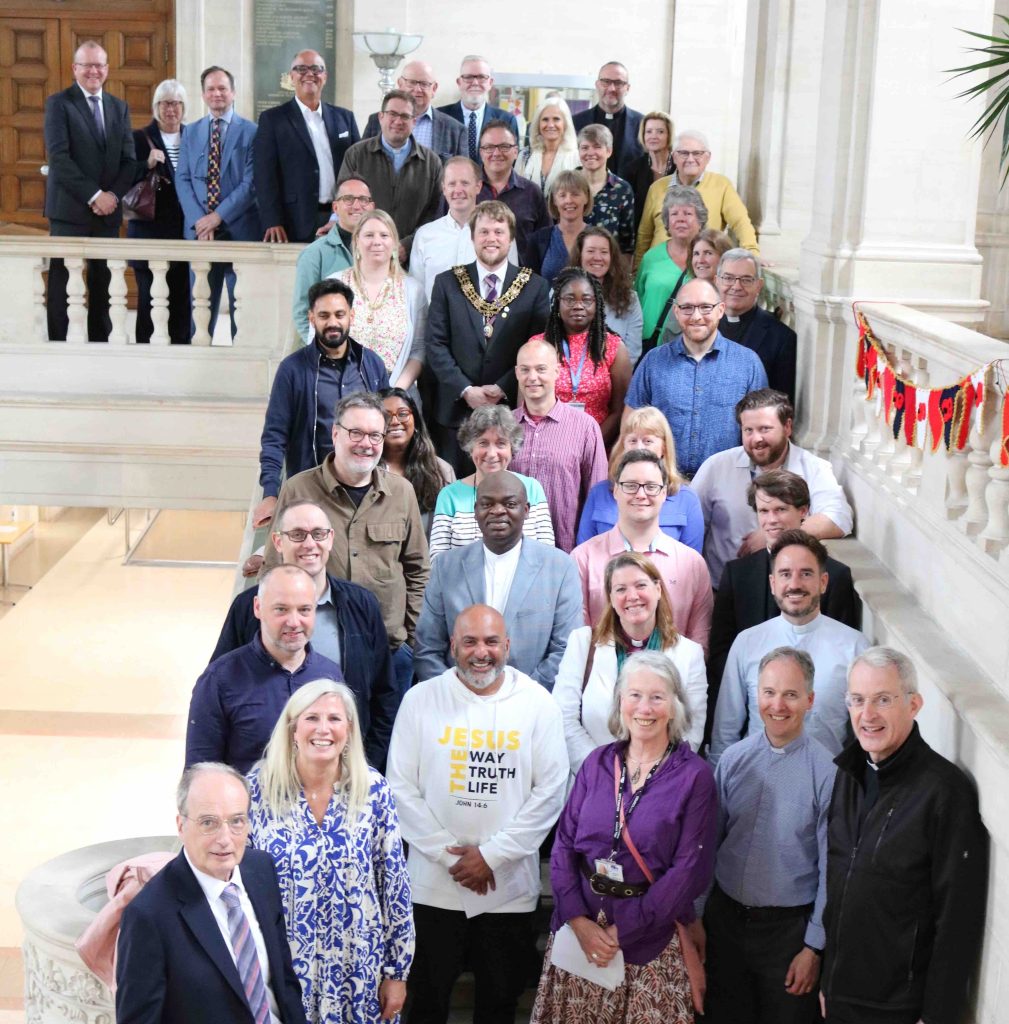
And do you pray for your political work?
Yes, a lot of the time I’m simply saying ‘help’. Sometimes as a councillor, you are dealing with some quite challenging situations. When I was cabinet member for education and children, there were some difficult issues there. So absolutely, I pray for those situations, because it felt sometimes that God was the only one who could solve those.
I also pray about decisions. I’ve learned since being in politics, that you can’t always please everyone and sometimes there is no right decision. There’s sort of the least bad decision and that can be a difficult thing to work through. So, praying into decisions before making them is important.
And at the end of the year, what do you hope you’ll have achieved?
I’ve got some specific targets. My view is that as a city that’s been a port for thousands of years, and whose identity and history has always been around the port, the people of Southampton don’t always know too much about it. So, raising awareness of our maritime heritage, particularly with the young people, is key for me.
And expanding on that, we want to engage our young people with the civic side of life. With my job as a teacher, it can feel like young people, at the moment, need the opportunity to be a part of something bigger and to be part of a community. This is where church and where youth groups have been so good, but the number of youth groups is not the same as it was 20 years ago. So, the chance for them to be part of something bigger, be part of the city, is one of my aims.
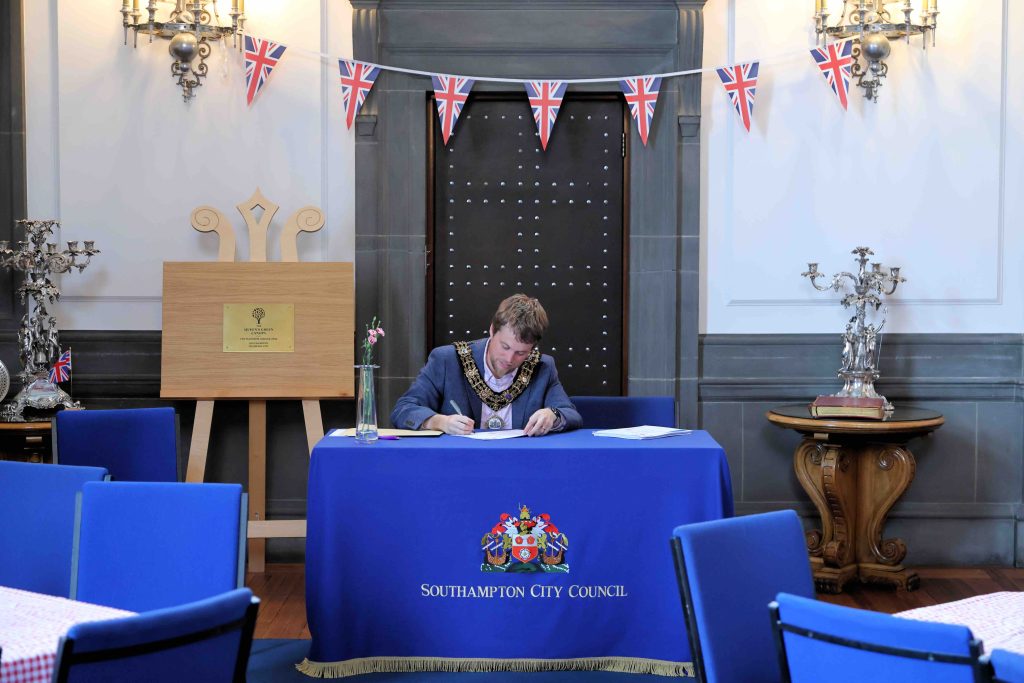
Do people know about your faith when you visit? Are they interested to hear about it when you go around Southampton?
Yes. Oddly, given this position, I’m not a particularly natural extrovert. So going around talking to people isn’t something that comes particularly naturally to me but when people ask what I’ve been doing, or I say I went to church or was at church last night, they’re often very interested. It often starts conversations, because most people have some experience of church, whether they went for Christmas last year, or they used to go and stopped going. Occasionally there are negative associations, but on the whole, it’s often a positive start or lead in to another conversation.
And your church must be very proud of you being Lord Mayor of Southampton?!
I think so. Some of them find it very funny, especially when I wear the full robes and the funny hat! It’s a church that I’ve been attending since I was about 10 years old, so they are sort of my extended family, so it’s been nice to share this with them.

